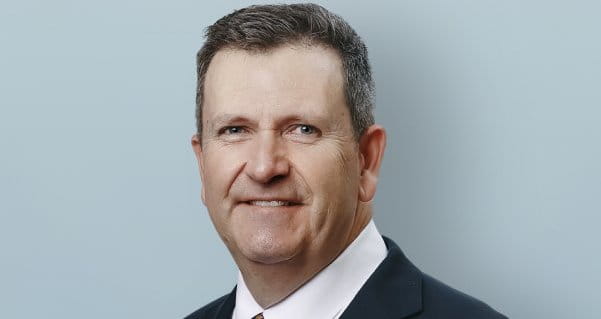War in Ukraine: The economic consequences
After a very strong performance in 2021, world share markets have had a disappointing start to the year, as initial concerns over the outlook for inflation and interest rates have been supplanted by the war in Ukraine.
While President Putin may well have expected a quick and decisive victory in Ukraine, fierce resistance from the Ukrainian military and an underwhelming performance from Russia’s military have ensured the conflict will likely persist for some time. Even if a decisive and destructive Russian ‘victory’ emerges over the coming weeks, the cost will have been enormous. Thousands of lives will be lost. The economic damage to Ukraine and the cost of reconstruction will be huge. And the Russian economy will pay a heavy long-term price. Clearly there is a humanitarian catastrophe that dwarfs economic implications, but still we must discuss the many implications of Putin’s folly. Read more below.
Brian Parker is the Chief Economist for Australian Retirement Trust, the super fund formed through the merger of Sunsuper and QSuper. Australian Retirement Trust is proud to take care of over $230 billion* in retirement savings for more than two million members.
3 minute read
First, it’s important to recognise that the direct economic impacts from what will inevitably be sharp falls in Russian and Ukrainian output and the exposure of Australian investors to Russia and Ukraine will be very small.
Together, both economies represent less than 4% of global output, or circa 2% in nominal US dollar terms. They are only a small portion of the investable universe in equities and fixed income. Even Russia, a vast landmass with a population of 145 million people accounted for just 3% of the MSCI emerging markets equity index and less than 0.5% of the MSCI all-country equity index at the end of 2021. Australian superannuation funds have had very little exposure to either market and most, if not all, have moved to eliminate any residual exposure following news of the invasion.
The wider impacts on financial and commodity markets and on food and energy security across Europe and elsewhere will be far more significant.
Both Russia and Ukraine are major agricultural producers. They are both large suppliers of wheat to a range of developing economies. Russia is a key supplier of a range of industrial metals. Ukraine is the largest supplier of neon gas used by the semiconductor industry in high-precision lasers. This is likely to exacerbate the world’s semiconductor shortage. And Europe’s (particularly Germany’s) dependence on Russian gas have been well-documented.
Obviously, the extent of the economic and financial market impact of this crisis depends on how long the conflict continues and we have no way of knowing with any certainty how this crisis plays out. In short, the world is likely to experience a stagflationary shock – lower output and upward pressure on prices at a time when core inflation has spiked higher in many economies. Europe is most vulnerable, particularly given its energy dependency on Russia, but the impacts will be widespread. Australia, given our geography and our status as a major producer of a range of commodities, from wheat to nickel and gas, is likely to be a beneficiary of this crisis. The relatively strong performance of both the Australian dollar and our share market over recent weeks probably reflects this.
Australian Retirement Trust, has a strong legacy of working with advisers, continued from Sunsuper, to help members truly live well in retirement. To find out more about our investment capability and dedicated adviser services, click here. If you would like to speak with one of our BDMs, please request an appointment.

* As at March 2022
Australian Retirement Trust Pty Ltd ABN 88 010 720 840 AFSL No. 228975
Australian Retirement Trust ABN 60 905 115 063
Unique Superannuation Identifier USI: 98503137921001
This document has been prepared and issued by Australian Retirement Trust Pty Ltd, the trustee and issuer of the Australian Retirement Trust. It contains general advice and does not take into account the investment objectives, financial situation or needs of any particular individual. You should consider if the advice is appropriate to your own circumstances before acting on it. Outcomes are not guaranteed. Past performance is not a reliable indication of future performance. You should also consider the relevant Product Disclosure Statement (PDS) before deciding to acquire or continue to hold any financial product. We are committed to respecting your privacy. Our formal privacy policy sets out how we do this. For a copy of the PDS or Privacy Policy, please phone 13 11 84 or go to our website.



